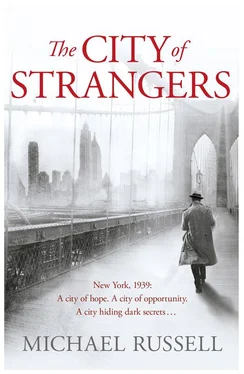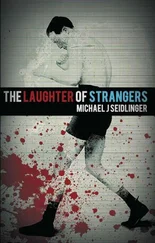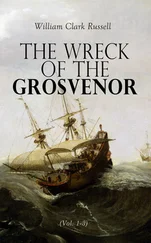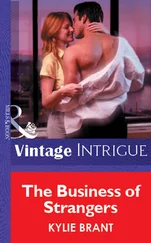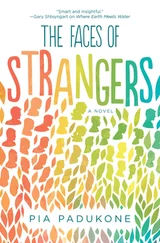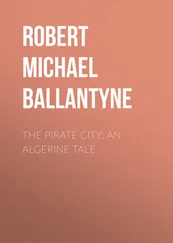MICHAEL RUSSELL
The City of Strangers
For
Anya, Seren, Finn, Coinneach and Marta
And the Silver Meteor
To the Pennsylvania Station
Send but a song oversea for us,
Heart of their hearts who are free,
Heart of their singer to be for us
More than our singing can be.
‘To Walt Whitman in America’
Algernon Charles Swinburne
RPACN FEBSA HOGYH VTNOY IKSAO RYHOI VAUAR OAOIR OKWGQ MWAYA IERIL IETTM NNSTN ATAUA OIETH ARGTR YLHRA NASRI FOOAA AIALL TINYN LMENV NOOYG EEHOS OAOET GECTN: List of spies noted. Am forwarding it to Intelligence Director for his information. Are you able to carry out annihilation of all spies?
From Decoding the IRA
Table of Contents
Cover
Title Page MICHAEL RUSSELL The City of Strangers
Dedication For Anya, Seren, Finn, Coinneach and Marta And the Silver Meteor To the Pennsylvania Station
Epigraph Send but a song oversea for us, Heart of their hearts who are free, Heart of their singer to be for us More than our singing can be. ‘To Walt Whitman in America’ Algernon Charles Swinburne
Part One: Uptown PART ONE Uptown Mrs Leticia Harris, aged 53, who resided at 14 Herbert Place, Dublin, disappeared some time after 6 a.m. on Sunday, 8 th March. The following morning her car was discovered at premises in Corbawn Lane, leading from Shankill to the sea. There were numerous bloodstains inside the car, and the police later in the day found a bloodstained hatchet in a shed adjoining her house, and also bloodstains on the flower borders in the garden. The police theory is that Mrs Harris was murdered in her own home and the body taken away in her car. Mrs Harris is the wife of Dr Cecil Wingfield Harris, 81 Pembroke Road, Dublin. The Irish Times
1. Pallas Strand
2. Fulton Market
3. Kilranelagh
4. Corbawn Lane
5. Inns Quay
6. West Thirty-Sixth Street
7. The Yankee Clipper
8. Fifty-Second Street
9. Centre Street
10. Pennsylvania Six-Five-Thousand
11. Fifth Avenue
12. The Hampshire House
Part Two: Upstate
13. Locust Valley
14. Central Park
15. Flushing Meadows
16. A Hundred and Twenty-Fifth Street
17. The Waldorf-Astoria
18. Route Eleven
19. Mexico Bay
20. The Empire State
21. A Hundred and Sixteenth Street
22. Saint Patrick’s Cathedral
Part Three: Upstroke
23. Dún Laoghaire
24. Béarra
25. The Four Courts
26. Henrietta Street
27. Reilig Chill Rannaireach
28. Royal Oak
War and the Rumour of War
Acknowledgements
About the Author
Also by Michael Russell
Copyright
About the Publisher
Mrs Leticia Harris, aged 53, who resided at 14 Herbert Place, Dublin, disappeared some time after 6 a.m. on Sunday, 8 th March. The following morning her car was discovered at premises in Corbawn Lane, leading from Shankill to the sea. There were numerous bloodstains inside the car, and the police later in the day found a bloodstained hatchet in a shed adjoining her house, and also bloodstains on the flower borders in the garden. The police theory is that Mrs Harris was murdered in her own home and the body taken away in her car. Mrs Harris is the wife of Dr Cecil Wingfield Harris, 81 Pembroke Road, Dublin.
The Irish Times
1. Pallas Strand
West Cork, November 1922
The storm did not come suddenly. All day the wind from the Atlantic had blown hard and cold and fast against Pallas Strand. The grey sky sped past overhead, heavy, thick, turbulent. The noise was unceasing, humming and roaring, loud and soft, and loud and soft again, but always there, along with the beat of the sea crashing endlessly against the white curve of sand. The farm lay back from the strand, behind a scattering of tufted dunes and a row of wasted trees, bent and twisted from long years of bowing and creaking before the wind, yet somehow always strong enough to stand. Indoors and out the blast of the wind battering the farmyard and the buildings had been constant, but still the rain hadn’t come.
The boy was in the yard, leaning into the wind to stand, scattering leftovers from a bucket to the ruffled and bad-tempered hens. He was seven; it had been his birthday only a week ago. He shouted and laughed as the puppy that had been his birthday present danced around him, darting and leaping, behind, in front, through his legs, trying to snatch the bacon rinds before the hens could get them. His father was in the barn, milking the three black cows. His mother was in the kitchen, peeling potatoes. He didn’t hear the two vehicles driving along the track from the main road. The wind was blowing the sound away from him. It was only as the dog turned sharply from the scraps and started to bark that he saw them.
He knew them well enough. The long, sleek Crossley Tourer came first, with its top open even in the wind, and its battered leather seats. He loved the Tourer and its white-walled tyres, despite the men inside it. The other one was different; a Rolls Royce armoured car with its squat turret on the back and its .303 Vickers machine gun sticking out through the letter-box sights. As the dog zigzagged angrily round the wheels of the Crossley, snapping and snarling, it stopped; three uniformed men got out. The boy knew them too. It wasn’t the first time they had driven into the farmyard at Pallas Strand.
There was a young lieutenant and two great-coated Free State soldiers. The lieutenant smiled; the boy didn’t smile back. No one got out of the armoured car; its turret moved in a slow, grating arc as the machine gun scanned the yard. The puppy kept up a furious yapping, now round the feet of the intruders, but a kick sent him flying across the muddy yard. The boy turned to find his father standing behind him. There was another man too, his uncle. Where his father was calm and steady, he could see the fear in the other man’s eyes. And his mother was there now, in the doorway of the house, wiping her hands dry with her apron. The lieutenant stepped towards the boy’s father.
‘You’ve heard what happened on the Kenmare road?’
‘I heard something.’
‘So where were you yesterday?’
‘I was here. Where else would I be?’
‘You were seen in Kenmare the day before, with Ted Sullivan.’
‘Who says?’
‘I do.’
The boy’s father shrugged.
‘There’s a Garda sergeant dead at Derrylough. A mine,’ said the officer.
The boy’s father shrugged again.
‘Someone said something about it.’
‘There was no mine on Tuesday. The road was clear.’
‘I wouldn’t know, Lieutenant. That’ll be your business.’
‘But Ted Sullivan would know, I’d say.’
‘That’ll be his business then. You’d need to ask him so.’
‘Maybe you’d know where he is then?’
‘Well, he wouldn’t always be easy to find.’
‘Unless you were an IRA man.’
‘There’d be a lot of IRA men in West Cork. You’d know yourself. And it’s not so long ago you fellers would have called yourselves IRA men.’
The boy’s father smiled. It was a mixture of amusement and contempt. It was a familiar conversation, empty, circular, quietly insolent; all the lieutenant’s questions would go unanswered. But he knew that. He turned to one of the soldiers and nodded. The man walked forward and slammed the butt of his rifle into the farmer’s stomach. As he collapsed to the ground the boy stepped between his father and the soldier, saying nothing, but glaring hatred and defiance. The soldier laughed. The boy’s mother ran forward across the yard, but her husband was already struggling to his feet. He looked at her sharply and shook his head. She stopped immediately. The boy turned to his father. The noise of the wind rose and blasted. The man smiled, despite his pain, and put his hand on his son’s head, ruffling his hair. The lieutenant put a cigarette in his mouth. He hunched over his hands for several seconds, trying to get his lighter to catch it. After a moment he straightened up, drawing on the smoke.
Читать дальше
